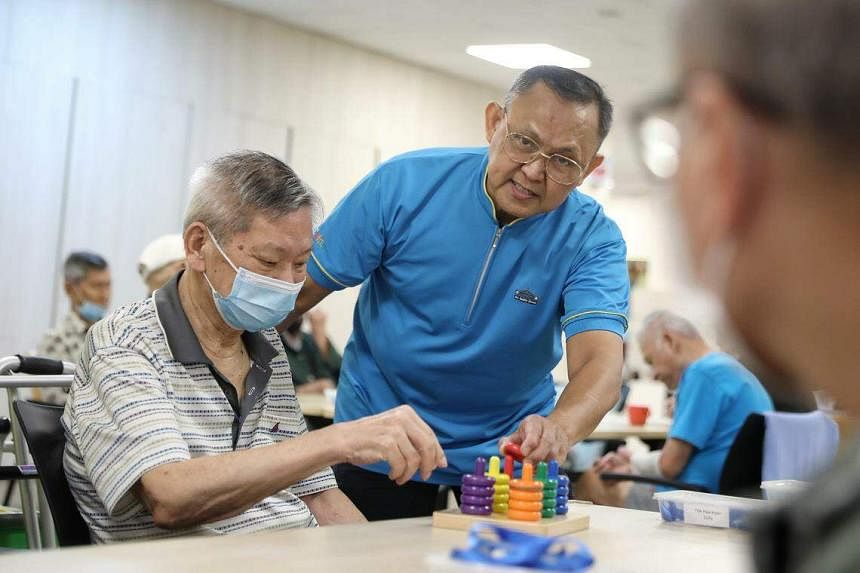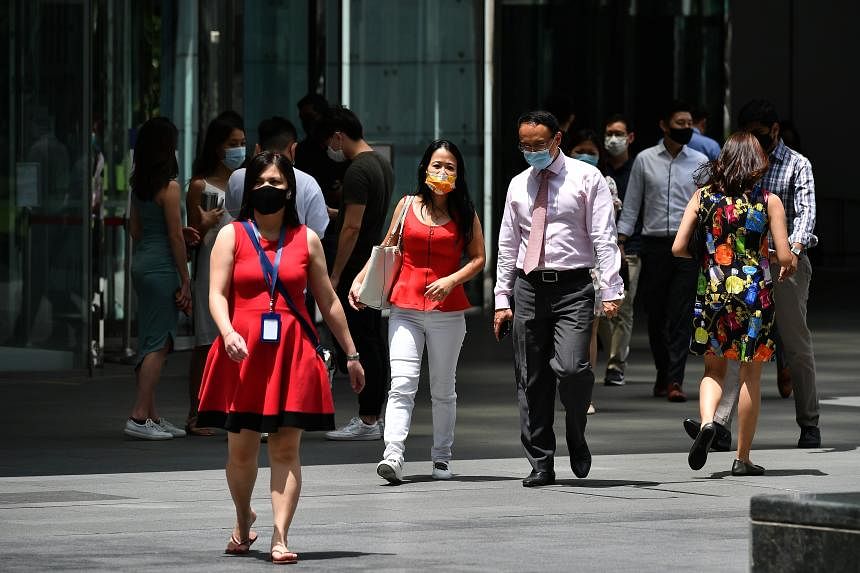Although more skills training is generally a good thing, it can be difficult for both workers and employers to identify high-quality courses which industries will find relevant.
That is why the Government will appoint Jobs-Skills Integrators, said Deputy Prime Minister Lawrence Wong in Parliament during his Budget statement on Tuesday.
These are institutions which ensure training will improve employment and earnings prospects by working with industry, training and job placement partners.
Examples of existing institutions that may be well placed to be Jobs-Skills Integrators include trade associations and chambers, unions and training providers.
The move is among several measures that Mr Wong, who is also Minister for Finance, unveiled on Tuesday to help workers across the spectrum. These include more support for senior workers who wish to continue working, more help for lower-wage workers to achieve better career progression, and also assisting vulnerable groups, such as former offenders, to get jobs.
On the move to better match training with industry needs, Mr Wong said: “Workers themselves may not know what training programmes to go for, or what competencies and skills they need to secure better jobs.”
Meanwhile, employers, especially small and medium-sized enterprises (SMEs), may also be unfamiliar with the training landscape and struggle to fill vacancies despite a pool of suitable job seekers, he added.
The scheme will be piloted in the precision engineering, retail and wholesale trade sectors, where there are higher concentrations of mature workers and SMEs.
The work of Jobs-Skills Integrators, Mr Wong said, includes engaging enterprises in the sector they oversee to understand the manpower and skills gaps.
“They will have to work with training providers to update existing training programmes, or develop new ones that will close the skills gap,” he added.
The Jobs-Skills Integrators will also have to work closely with job placement agencies, secure the support of industry partners and unions, as well as identify individuals with the right aptitude and fit for training.
More details will come during the debate on the Ministry of Education’s budget in either end-February or early March.
Mr Wong also said the Government will continue to provide additional employment support for senior workers.
Current moves include raising the retirement and re-employment ages, providing wage support through the Senior Employment Credit, and supporting employers who offer part-time work.
The Senior Employment Credit, which was in place from January 2021 to December 2022, will be extended till 2025, said Mr Wong.
Unveiled in 2020, when the Covid-19 pandemic hit, the scheme provides wage offsets to help employers with Singaporean workers aged 55 and above adjust to the higher retirement and re-employment age.
The Part-time Re-employment Grant, which provides up to $125,000 in funding for employers that commit to a part-time re-employment policy for eligible senior workers, will also be extended till 2025.
Among those who benefited from these schemes was Mr Rahmat Hamid, 62, a community care associate in senior care services at All Saints Home (Yishun). He retired after nearly 40 years in the hotel and food and beverage industries, but soon found he wanted to continue working and contribute to society, said Mr Wong.
The new wave of support is meant to continue encouraging and supporting employers that recognise the value of senior workers like Mr Rahmat, invest in them and enable them to keep earning a good living, said Mr Wong.
More details on employment support for senior workers are expected in the debate for the Ministry of Manpower’s (MOM) budget.

Meanwhile, to help uplift the wages of lower-wage workers, the Government will increase its co-funding support under the Progressive Wage Credit Scheme (PWCS) for qualifying year 2023.
Set to last through 2026, the scheme defrays wage increases employers give to lower-wage workers.
The Government will co-fund 75 per cent of a wage increase of at least $100 for resident workers earning $2,500 and lower in gross monthly wage, and 45 per cent for those earning above $2,500, up to $3,000.
These match the level of co-funding in qualifying year 2022, and are up from 50 per cent and 30 per cent previously.
The PWCS fund will also be topped up by $2.4 billion to fund the increases.
Mr Wong added that the Enabling Employment Credit, which supports employers that hire persons with disabilities, will be enhanced to cover a larger proportion of wages.
The credit will also last for a longer duration for those who have not been working for at least six months, said Mr Wong.
A new Uplifting Employment Credit, which introduces a time-limited wage offset to encourage firms to employ former offenders, will also be introduced, said Mr Wong.
He added that further details on the schemes will be shared during the debate on MOM’s budget, and the outcomes of the schemes will be reviewed in 2025.
“The moves I have outlined represent a major investment in our enterprises and people – from SMEs to large companies, and workers across various life stages and different forms of employment,” he said.
“We are doing all this so that our workers and businesses can be well-prepared for the future, with all its uncertainties, challenges and opportunities.”


